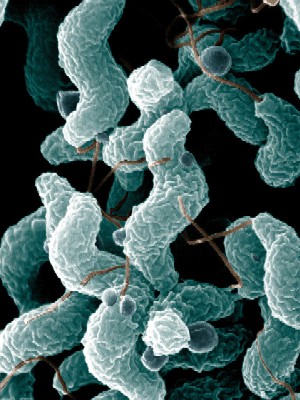 Microbial Diagnostics
Microbial Diagnostics
Rapid and reliable microbial detection is urgently needed by clinical, environmental and food industries to save lives, minimise re-infection and cut down cost. Microbial diagnostics is a multi-billion industry world-wide. The food microbiology sector alone has a market value exceeding $1.65 billion. However, the conventional methods for pathogen detection used by industries and regulatory agencies are labour intensive, time consuming (3-6 days) and costly. Newly developed molecular methods, which offer greater sensitivity and specificity, have hitherto been technically demanding and expensive.
We are developing a nucleic acid based technology which offers for the first time, at low cost, the simultaneous detection of multiple pathogens within 5-8 hours and has the potential to revolutionise the microbial diagnostic industry and save lives through prevention of food poisoning epidemics. While the technology will intially focus on pathogen detection in food and the environment, it has wider applications and will be attractive to healthcare, forensic and remediation industries. We are also investigating the environmental resevoir and transmission of human pathogens.
Projects
- 2007-2010: A novel technology for detection of multiple microbial species. Funding Agency: Scottish Enterprises (under Proof of concept initiative). PI.
- 2008-2010: Detection of neurotoxin-producing Clostridia in food and environment samples. Funding agency: Unilever. PI
Group Members
- Dr. Brajesh K Singh
- Dr. Geoff Elliott (Postdoctoral Research Fellow)
- Ms Nadine Thomas
External Collaborators:
- Dr. Iain Ogden (University of Aberdeen),
- Prof Mark Enright (Imperial College London),
- Dr. Peter. McClure and
- Dr. Jan McClure (Unilever)
Selected publications
- Macdonald, L, Singh, BK, Thomas, N, Brewer, MJ, Campbell, CD, Dawson, LA. Microbial DNA profiling by multiplex terminal restriction fragment length polymorphism for forensic comparison of soil and the influence of sample condition. Journal of Applied Microbiology, 105: 813-821.
- Szubert, M., Reiff, C., Thorburn, A. and Singh, B.K. (2007). REMA: A Computer-based mapping tool for analysis of restriction sites in multiple DNA sequence. Journal of Microbiological Methods. 69, 411-413.
- Singh, B.K. and Thomas, N. (2006). Multiplex-Terminal Restriction Fragment Length Polymorphism. Nature Protocol. 1, 2428-2433.
- Singh, B.K., Nazaries, L., Munro, S., Anderson, I. and Campbell, C. (2006). Use of multiplex terminal restriction fragment length polymorphism for rapid and simultaneous analysis of different components of the soil microbial community. Applied and Environmental Microbiology 72, 7278-7285.
Media coverage
- Technology development funded to cut bug-testing. - Singh, B.K. - STV broadcast.
- Features on food testing kit. - Singh, B.K. - BBC Scotland TV and radio broadcasts.
- Articles on food testing kit. - Singh, B.K. – The Times
- Life-saving test kit can identify food bugs in just 5 hours. - Singh, B.K.- The Scotsman.
- Hope for new food bugs test. - Singh, B.K. - BBC website
- Fund boost for food test kits plan - Channel 4 website
- Scottish Scientist’s To Develop ‘While-U-Wait’ Contaminated-Food Detector - Innovation report
- Fastest food bug kit funded - The Engineer on-line
- Scottish Scientist's To Develop 'While U Wait' Contaminated Food Detector - Medical News Today
- Kit cuts pathogen detection time down to hours - Food Production Daily
- Researchers develop hi-tech kit to tackle food poisoning epidemics - CORDIS
- Kit cuts pathogen detection time down to hours - Food quality News
- Food tests wins proof of principle funding - Science Business News
- New kit cuts pathogen detection time down to hours - OBI bio security and technology news
|
Updated: 23 Jan 2024, Content by: BS
|

